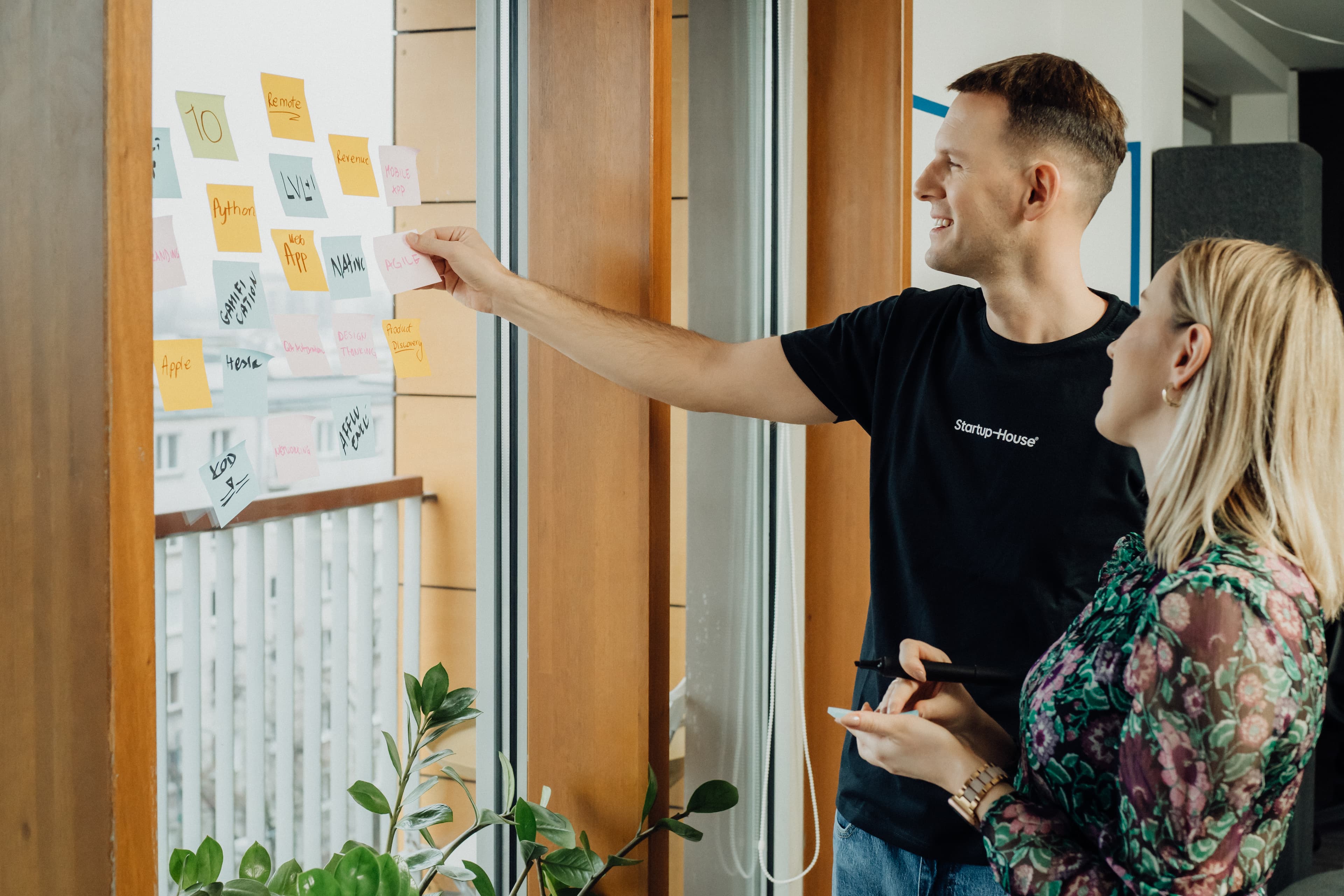Why Founders and Product Teams should document their research
Audrey Alves-Cunka
Jun 02, 2023・4 min read
Table of Content
1. Research and facts are more assertive than assumptions or beliefs
2. Documentation structures your work, making it more effective
3. Documenting research: minimal effort for maximum benefit
How often have you been asked to back up your assertions with numbers? How often asked for specific figures when providing market, user or product insights? How easily has it been to share documents with those you’re presenting to instead of continuously having to re-explain yourself? If ever you’ve found yourself in such situations, then it’s time you started documenting your research.
Reasons to do so are numerous, but in the meantime, let's focus on three:
1. Research and facts are more assertive than assumptions or beliefs
When you meet a new investor, employee or partner, keep in mind this will likely be the first time he or she learns about your product. So, effectively onboarding that individual demands that you be at your clearest and most convincing.
And although you can count to some degree on that person’s emotional or social motivations, above all, he or she will ultimately expect that your product will be profitable. This is why a successful demonstration on how and why users will love your product or service requires hard facts and figures.
Always record information. Write things down – insights, numbers, conclusions, etc: you are guaranteed to forget them otherwise. Documenting your research will thus enable you always to present more effectively, share more accurate information, and answer questions more thoroughly. In turn, this will enhance your professional image and strengthen your case for investment.
In your presentation, ensure you clearly structure your findings. Though you will find online much information on how best to do this, first be clear on what you wish to demonstrate. Consider which figures will support this demonstration and from what sources they come.
Example:
If you’re making a case for a certain market’s potential, you’ll have to employ solid market figures while citing sources that are familiar to your audience (e.g. Forrester, Statista, etc.)
If your case regards a user need or pain, show that you’ve screened your interviewees, that they are genuine members of your target audience, and that your findings are endorsed by statistical analysis.
2. Documentation structures your work, making it more effective
Shaping a business is a continuous process. It requires being mindful about what's happening on the market, making informed decisions based on facts, and adapting quickly. To do these things effectively means keeping them properly structured and documented. This way, you will always have access to your decision-making history and be able to keep yourself (and others) updated. It will also enable you to track your reasoning should pivots or minor/major iterations occur.
Example: imagine you’re looking to take up a new sport or workout routine. If you want to achieve gains in either, you need an objective – a goal in mind – and ensure that you track your progress in reaching it. And usually, this tracking process will be in documented form. This way, you can observe your progress more clearly, and assess what’s working and what’s not.
Similarly is it like conducting research: you start with a plan, enact that plan, update it, adapt, observe, take decisions… Documentation and retrospection are the most effective means of ensuring self-awareness, of knowing where you are, of what to do next – and why. And that you don’t make the same mistake twice.
Documenting also helps you avoid repeating yourself when others question you about your market or users. When you share well-documented research, it makes for better opportunities to have more in-depth, critical discussions later on. The easier and more rapidly you onboard partners (marketers, creative agencies, software developers…), the quicker they will bring value to your venture.
3. Documenting research: minimal effort for maximum benefit
If you do your research intelligently, you’ll be amazed by what relatively little effort it requires. You should put 100% of your focus on market and user, and in doing so naturally will be drawn to document what you’re learning about. Not doing so goes a long way in explaining why so many startups fail: they simply do not put enough emphasis on gaining an intimate understanding of their users and/or markets. And this understanding is gained through research and in documenting that research.
So, when embarking on research activities, try doing small things first and documenting them:
Write down that which you have doubts about, then formulate your research question.
List hypotheses and define proper research methods for verifying these hypotheses.
Establish a timeline required for running this research and decide whether it is plausible (effort v results ratio).
Clarify what kind of information you wish to gather; determine how and why you’ll use it.
Such efforts won’t take up your time. Instead they will help you better understand why you’re doing the things you are, and how you can gain the maximum benefits from them. Without documentation, you might soon feel directionless.
Moreover, it’s important you do things on the go:
Copy/paste links to relevant and meaningful articles so that you’re easily able to access them later for further consideration.
Make immediate note of interesting/relevant quotes that might be useful for future presentations.
When interviewing, ensure you record key information on any similar patterns of behavior you observe in interviewees who are reacting to a topic, screen or particular problem.
Ultimately, documenting your research renders you a reliable, effective and consummate professional. It enables you to make data-driven decisions more easily, and thus onboard partners more efficiently. Documentation practice structures your working habits more rigorously and in doing so, enhances your confidence, positivity and professional outlook. When such factors are successfully adopted into your every-day, your chances of success in the market are suddenly that much better.
*Source: https://www.cbinsights.com/research/startup-failure-post-mortem/#2022update4
Digital Transformation Strategy for Siemens Finance
Cloud-based platform for Siemens Financial Services in Poland


You may also like...

Software solutions integrated: building connected digital products that actually work together
Stop running your business on disconnected tools—build one integrated ecosystem that shares data and workflows in real time.
Alexander Stasiak
Jan 08, 2026・12 min read

Mental health app features
Mental health apps have evolved far beyond meditation timers. In 2026, users expect personalized support, evidence-based content, strong safety features, and privacy-by-design.
Alexander Stasiak
Nov 30, 2025・10 min read

How a Full-Service Software House Accelerates Product Development
A full-service software house gives you everything you need to launch fast — design, development, QA, DevOps — all under one roof. Here’s how it accelerates your product success.
Alexander Stasiak
Jul 03, 2025・7 min read
Let’s build your next digital product — faster, safer, smarter.
Book a free consultationWork with a team trusted by top-tier companies.








